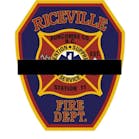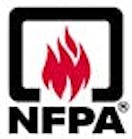IAFC Report Explores Emotional, Mental Impact of Fire Service
Source Firehouse.com News
July 24--The International Association of Fire Chiefs in conjunction with the IAFC Volunteer and Combination Officers Section (VCOS) has released a report exploring the emotional impact and behavioral health issues associated with the fire and emergency response services.
The aim of the 42-page report -- entitled "Under the Helmet – Performing an Internal Size-up: A Proactive Approach to Ensuring Mental Wellness" -- is to bring awareness to the elements of emotional and mental well-being in the emergency services and also emphasizes the need to change the culture surrounding these issues.
"Much like we have a duty to serve our communities, we have a duty to serve one another," Chief John Sinclair, IAFC president and chairman of the board, said in a release. "We must look out for each other unremittingly, not just on the fireground or at the station. It is imperative that we are able to identify the signs of stress and the behaviors resulting from cumulative stress overload."
Some of the key takeaways from the report include:
- Emotional and behavioral health, as well as dealing with cumulative stress, should be a part of first responders' initial education.
- Fire departments need to become familiar with emotional health issues and learn methods of reducing their impact on members.
- Education programs need to be developed for officers to better handle behavioral health issues affecting the men and woman in their charge.
The report also lists several signs that can help determine if a first responder is suffering from a serious emotional or mental health issue such as PTSD, including raised blood pressure or heart rate, tightening of muscles, weight gain, immune system decreases, and drug or alcohol abuse.
Some of the recommendations to counter these potential issues involve things such as proper diet and exercise, but the one remedy emphasized above all others is simply opening up and talking to either a colleague or a mental health professional. A wealth of resources that can help first responders cope and begin to heal from the abundance of stress they face every day on the job is available in the report.
"It is time we acknowledge and truly understand the ongoing emotional impact our public safety role has on our health, well-being, and relationships," said Chief Chuck Flynn, VCOS vice chair and lead on the project. "After all, sometimes lives depend on it."
For more on Behavioral Health:
- How Firefighters Can Manage Stress
- Martin, Tran, Buser: Depression & PTSD Shown to Be Strongest Predictors of Suicide
- Morrison: How Fire Departments are Addressing Post-Traumatic Stress Disorder
- Sendelbach: Assessing Risk Never Stops
- Lamplugh: Responding to Your Own Mental Health
- Lorber: Stress Awareness: Signs & Symptoms
- Ludwig: Suicides Among Fire & EMS Professionals
- Warren: When Firefighters Become Patients
- Ludwig: Suicides Among Firefighters and Paramedics
- Sendelbach: Continuing the Conversation
- Siarnicki: Who Responds to a Firefighter’s Worst Day?
- Kenny: Suicide Prevention: Do Something About It
- Wilmoth: Can We Talk?
- Video: Suicide in the Fire Service: Saving Firefighters
- Video: Soaring Firefighter Suicides Focus of Documentary






